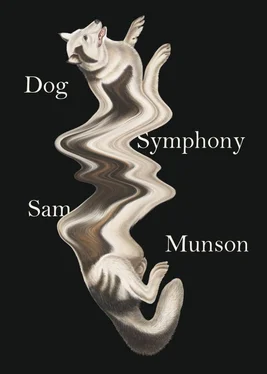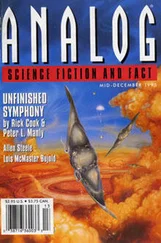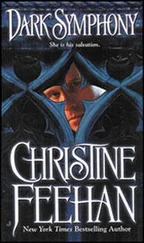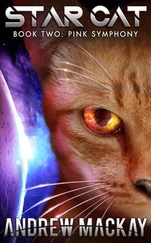Hecklers had now begun to catcall and hurl obscenities at the “ethics-firsters.” Shut up, shut the fuck up, a hoarse female voice shouted again and again. Luxemburg cackled each time. She was now looking down the barrel of her pistol into the quadrangle. Impossible. I attempted to move past Sanchis Mira, but the crowd was too dense. My headache had worsened. The white blooms of pain patchily obliterated the gathering darkness. Not from here, it’s impossible, Luxemburg cried again. Through the white shed’s doorway a new squad of waiters darted, each carrying a steel platter piled with dark slabs. Roast meat. A waiter proffered a platter. The smell nauseated me. Nonetheless, saliva leaped into my mouth. Sanchis Mira took a slab of meat from the platter and held it up for examination. He brought it close to his nose and inhaled. He noted my failure to take up a slab, and — with the meat near his nostrils — said, Mr. Pasternak, surely you won’t refuse our meager hospitality? If I refused, it would mean an end to the conversation, which would mean an effective end to my search for Ana. Nausea, another wave of it, made my stomach flutter. Mr. Pasternak, please, said Sanchis Mira. He himself took another slab and offered it to me. The waiter forced his way through the crowd. Hands emerged, so to speak, from the darkness and removed slab after slab from his platter, and thick cries of delight surrounded his progress. I had no choice, now. I accepted the meat. Its scent, blunt and mildly cloying, almost made me vomit. But its overwhelming (historiographic) flavor, which I could not identify, calmed my nausea instantly, and the liquefied fat leaking onto my tongue silenced my so-called “inner voice.” Sanchis Mira held his wineglass in one hand and his meat in the other, tearing it repeatedly with his enormous, tile-like, incandescent teeth.
As we ate, a crowd built up around the long white table, forming two writhing lines. There, on the roof, the guards abandoned their posts to help shepherd these lines and to answer the questions from the partygoers waiting in them. Soon, soon, said Luxemburg. The words slipped through the gap in the systolic/diastolic cries now rising more loudly, more shrilly, from the quadrangles, where the ethics-firsters and their opponents spurred each other to greater and greater heights of student moronism. The evening’s entertainment, said my host. He clasped my biceps, as Luxemburg had done, and the grease on his fingers stained my suit jacket. To remove myself from his grasp would have been an even greater insult than refusing the meat, so I accompanied him, as I had accompanied Luxemburg, through the crowd — it parted around him, turning up its arrayed, moist eyes in respect — to the table set with the white cloth and steel bowls, now illuminated by a cone of baronial glare from a tall aluminum-bodied lamp. Money filled the steel bowls. Bills and coins, pesos, dollars, euros, rubles, yen, Turkish lira, even Kenyan shillings, which I recognized only because I had written a paper in graduate school about the chastnyye polyany (a term in my field designating the places in a prison used by the staff and guards, not by prisoners, i.e., the barracks, the offices, the private kitchen and eating rooms) of the Kamiti in Nairobi.
Two guards in sky blue, their hands on their pistols, flanked the table and stared straight ahead. The crowd around me thrust their arms out and handed money to a waiter behind the table, who counted it, noting the amounts and names, and asked: Left or right? This waiter bore the marks of a severe beating, two greenish edemas around his right eye, jammy blood in the cut on his torn lips, a blue bruise on his cheek, his left ear swollen. Hello, sir, he said to Sanchis Mira, will you be playing tonight? A wet, ragged sound came from his chest as he breathed. Sanchis Mira removed his wallet — an enormous wallet made of red leather. It too bore the golden label GENUINE PAMPAS HARE. The injured waiter would not look at me or at anyone else. He kept his eyes on Sanchis Mira as he took my host’s money. I thrust a sheaf of dollars at him, to see if he would at last look up. He did not, though he did speak to me: Left or right, he asked. I hesitated. Sanchis Mira said: It’s a simple question, Mr. Pasternak. Now is no time to play Hamlet in Russia. I said left; my money went into the left bowl. Academic bodies behind me emitted academic warmth. A loud whistle interrupted this churning. All the partygoers clustered around the bowl table stopped moving and the bruised waiter slammed an oblong Lucite cover over the two bowls. Ladies and gentlemen, ladies and gentlemen, Sanchis Mira was repeating.
He had at last released my bicep. The crowd was surging to the edge of the roof, pulling me along, among the wet eyes, wet mouths, wet hearts, and wet assholes. The guards stayed behind with the money. The waiter stared off into the vacant night. I almost stumbled among the rushing spectators, but I righted myself — stumbling now would have constituted an irremediable defeat. From the grit-covered parapet, the vista looked simple, even meager. On the other side of the University buildings, into the newspaper-colored distance, a long, irregular banner of waste ground stretched. It was lit by floodlights mounted on steel poles. I could not determine its borders, and the sickening notion apparated or even coalesced: it reached to the sea, Pasternak, to the Atlantic. The floodlights aided this illusion. They were too widely spaced, making it harder to observe the field. In their closed circles of glare you saw every grass-blade, every gleaming, water-filled depression. As a result, in the darkness beyond the glare almost nothing could be seen. Silence? No. A guest, his features obscure in the dimness, leaned next to me, breathing hard. The tarry scent of wine poured out with every exhalation. Factitious ticking. Sanchis Mira was holding up a dim silver pocket watch. Other than that you could say it was quiet.
The waste field spread before us under the chaotic and useless floodlights, a simple and unreal cloth. I asked this dim guest what we were supposed to be watching, and he hissed: Shut the fuck up, you have to be quiet, otherwise it could be considered undue intervention. As he finished his sentence, a dog trotted up to a light pole and lifted its leg. The white brilliance washed out the dog’s rufous fur to a brick-pink; its shadow trembled on the grass and my heart trembled as well. The animal was a bull terrier. It carried itself with humble strength. Its collar blinked, as it slowly circled the pole, like an eye, like a blinded eye. Like a heliograph, Pasternak, or a heliotrope blossom, I thought. Another dog ambled through the light, this one gun-colored, hugely tall, and bulky-chested. A mastiff. The two nosed each other’s anuses. Their grumblings reached the spectators on the roof, who maintained their silence. Sanchis Mira’s pocket watch was still aloft. Now more dogs arrived, trooping out of the darkness with easy serenity. Dog by dog, a pack of thirteen formed. The reddish dog, the mastiff, a spotted spaniel, two German shepherds standing side by side, an obese puli the color of crematory smoke, a dock-tailed pit bull, a borzoi whose fawn fur had been shaved almost to the skin, a Saint Bernard asleep next to the light pole, a bloodhound resembling (as all bloodhounds do) a prelate or dictator, and three mutts, grayish-brown, who crouched flank to flank in the half dark edging the floodlight pool.
The man standing next to me was getting excited. His breathing grew deep and coarse. His saliva itself, I suspected, took on a rustic smell. The odor of cooked meat, cooked fat, lymph, blood, the odor of civilization. Or is it culture? It spread, drifted, and lingered. The tick, tick, tick the pocket watch released into the night, like a naked human pulse — my own pulse slowed to match it, though that might simply be an aestheticized memory. Down on the waste field, a new shadow danced. A human shadow. A woman’s. I could not make out her features at this distance. I saw she was a brunette, that’s all. At rest on her shoulder a metal rail or joist. Sanchis Mira held a thick, short silver tube to his lips, connected to a leather cord that encircled his neck, and blew through it. Producing another silence, one inflated to near-bursting. The dogs raced toward the brunette on the field. She cried out. In defiance or despair.
Читать дальше












